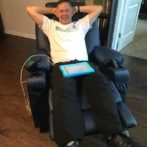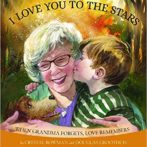Snapshots of Dementia: The Rest Is History
Mom (R) and I aboard the zodiac (small rubber boat used for off-ship excursions). I mentioned in my last post that I had the privilege of having some time away, and I’ve also written on social media about my amazing trip with my mom (her ninetieth birthday present from our family). This was a bucket-list item for her, a small-boat cruise off the Atlantic provinces of Canada, but it ended up being the trip of a lifetime for us both! Mom and I share many of the same interests, including a continuing love of learning. This trip was perfect for us because not only did we get to see lots of amazing sites—including Sable Island, a coveted destination spot that boasts its own herd of 500-plus wild horses—but Adventure Canada brought biologists, anthropologists, naturalists, and more along to help us understand and appreciate everything we saw. Mom and I will be forever grateful for the many growth opportunities as well as the wonderful new friends we met. During our trip, I also discovered some things about myself and my caregiving situation. Here are five things I learned during my time away. 1. I needed a break: The first few days of our trip, I slept. A lot—ten to twelve hours at night with some daytime naps as well. I was amazed at both how tired I was and how good it felt to get enough rest! It also took me those first few days to realize that I’ve been living without adequate rest. I plan to correct that because I enjoy the way it feels to have sleep, and I know it is much better for my life and my health in general. 2. Caregiving carries with it a unique level of stress. Yes, this is closely tied to point 1. But wasn’t I also a caregiver on my trip? You might think so, but my mom is amazingly sharp, with only mild, age-related cognitive decline. I did have to open the heavy doors, carry our bags, and watch out for her on stairways and hikes, but I did not have to make all the decisions, ensure her safety every time we went anywhere, and carry a private concern that she might say or do something inappropriate. Those are all part of what makes even a simple trip to the grocery store with Tom an increasing challenge. 3. I now view the world through a caregiving lens. I tried hard not to talk about Tom or caregiving all the time (although I’m not sure my mom would say I succeeded). I do know that he was often in my thoughts, and I realized for the first time that I now relate to much of...
Read More







